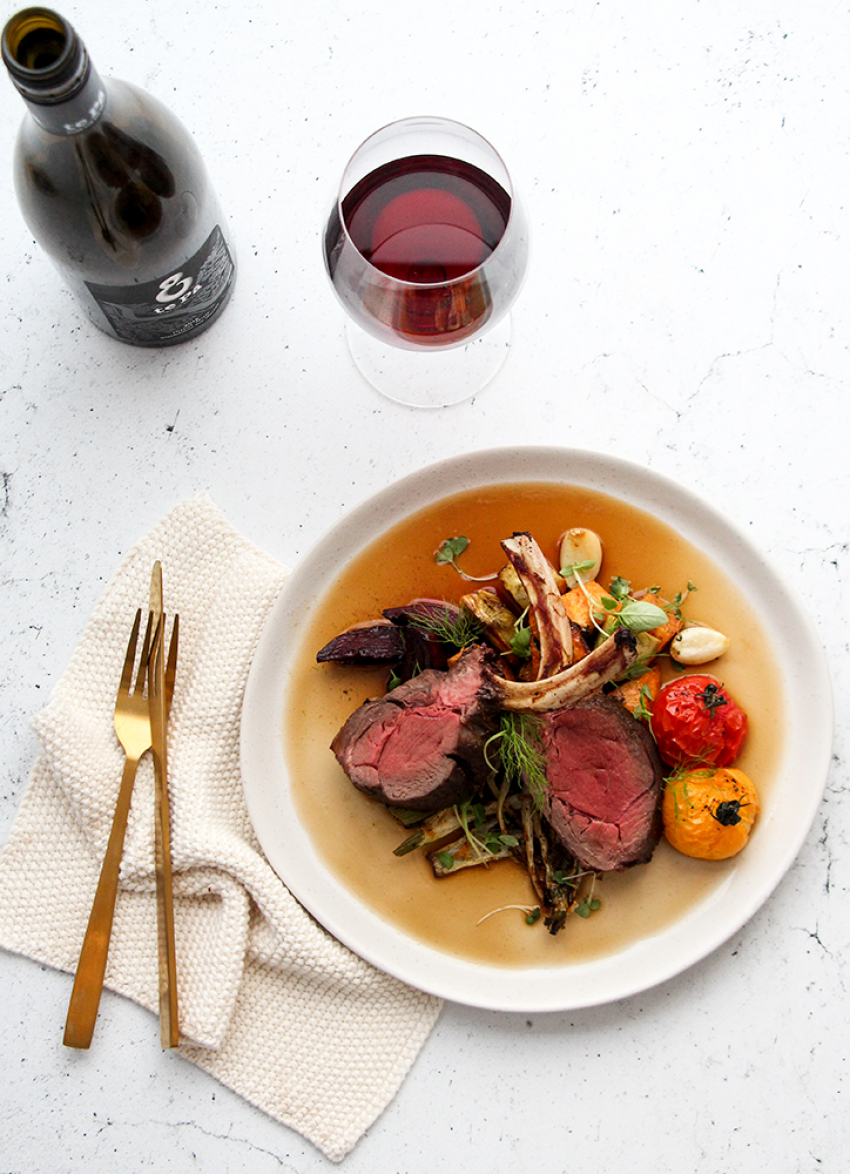Farm-Raised Venison: New Zealand's Healthy Delicacy

Not only is venison delicious, it is also low in fat, one of the best dietary sources of iron and full of nutrients and vitamins you and your family need. We have the nutritional information and health pointers this Iron Awareness Week.
This article was created in partnership with Greenlea Butcher Shop
Farm-raised venison is one of New Zealand’s premium foods and comes with the assurance that the deer are grass-fed, and free of hormones, antibiotics and growth promotants. In addition, farm-raised venison is processed in accordance with international standards for hygiene, traceability and food safety.
The nutritional composition of venison
Lean venison is a healthy food that is low in fat, saturated fatty acids and cholesterol, and high in protein, vitamins and minerals, particularly iron. The nutritional composition of venison is shown in the table on the opposite page.
Protein
Protein is required for the growth and repair of body tissues. Venison is an excellent source of high biological value protein, with a 100g portion of cooked meat providing 28-35g protein.
Fat and saturated fatty acids
A major health concern for adults in Western countries is excessive intake of dietary fat, and in particular, saturated fatty acids.Venison is very low in fat, making it an ideal meat to include in a healthy New Zealand diet. Many cuts of venison contain less than 2% fat (and less than 1% SFA) and even venison mince contains less than 4% fat (and less than 2% SFA).
B Vitamins
B vitamins are important for metabolic reactions within the body. Venison is a good source of B vitamins, particularly vitamin B12. A 100g portion of cooked venison provides over half of the daily requirement for vitamin B12. Venison is also a source of the vitamins thiamin, riboflavin, niacin and vitamin B6.
Minerals
Iron
Iron is a component of haemaglobin, myoglobin, cytochromes and enzymes involved in redox reactions2. Iron is also important for early cognitive development. Iron deficiency is prevalent in New Zealand among infants and young children4,5 adolescent girls (especially of Māori, Pacific Island and Asian descent) and women of childbearing age. Deficiency of iron can lead to symptoms of fatigue, impaired immunity, delayed psychomotor development in infants and impaired cognitive function.
Venison is one of the best dietary sources of iron, with the iron present in the haem form, which is easily absorbed by the body. Also, the protein in the meat can enhance the absorption of non-haem iron, found in vegetables and cereals, if they are eaten at the same time.
Zinc
Venison is also a good source of zinc. Zinc is a component of various enzymes and is important for a healthy immune system. A 100g portion of cooked venison provides over a quarter of our daily requirements. The zinc in venison is well absorbed by the body.
Selenium
Venison provides some selenium, which is essential for a healthy immune system and for thyroid hormone metabolism. Selenium may also be anti-carcinogenic.
Venison is the healthy choice for the whole family. Venison can form part of a healthy meal for all members of the family, alongside plentiful amounts of vegetables or salad, and bread or cereals (such as rice or pasta).
Infants and toddlers
Infants and toddlers experience rapid growth, and as such, nutrient needs are high. Venison is a great food for infants and toddlers. Packed full of nutrients, it can provide high quality protein for growth, along with B vitamins, iron and zinc. Ensuring adequate iron and zinc intakes is particularly important in this age group to promote optimal development.
Once an infant is around 6 months of age, puréed meat such as venison can be introduced. The infant can progress on to finely-chopped tender meat as swallowing skills develop.
A toddler’s need for iron is relatively high, yet few iron-rich foods may be consumed13. Venison is an ideal food for young children, given its iron content.
Pregnant women
Iron requirements increase significantly during pregnancy, with the recommended daily intake rising to 27mg/day. To ensure adequate iron intake during pregnancy, at least two servings a day of iron- containing foods should be consumed. Venison, as one of the richest dietary sources of iron, can make a significant contribution to iron intakes among pregnant women.
Healthy adults
The Ministry of Health’s Food and Nutrition Guidelines for Healthy Adults recommend maintaining a healthy body weight, eating a balanced diet that includes a variety of nutritious foods, and taking regular physical activity. Consumption of plentiful amounts of fruits, vegetables, breads and cereals is recommended, along with lower fat dairy products and lean meat and alternatives. Intake of fat, salt, sugar and alcohol should be limited. Venison is low in fat and SFA, and is highly nutritious, so can form part of a balanced diet for healthy adults.
Older people
As people get older, nutrient dense foods become more important in the diet, particularly if there is a decline in appetite and as a result a reduction in the quantity of food consumed. Requirements for thiamin and vitamins B6 and B12 tend to be higher in older people15 and venison can make a useful contribution to intakes of these vitamins.
Coronary Heart Disease
Dietary modification is important for the prevention and treatment of coronary heart disease. In particular, it is important to consume a diet low in fat, and especially SFA, in order to lower blood levels of total and LDL cholesterol.
A review of studies on meat consumption and CHD risk found substantial evidence that lean meat does not raise blood total and LDL cholesterol levels, as long as the overall diet is low in fat and SFA18. Venison is very low in fat and SFA, so is an ideal meat for those on a cholesterol-lowering diet.
Concerns that the iron in meat may increase oxidative stress are unfounded. A recent study, which investigated the effects of lean red meat consumption on markers of oxidative stress and inflammation found no elevation among the meat-eaters.
For those at high risk of cardiovascular disease, the New Zealand Heart Foundation recommends that small or moderate servings of lean meat can be included as part of a normal varied diet, providing the diet is balanced with large servings of vegetables.
You can have First Light venison delivered direct to your door from the Greenlea Butcher Shop. Find out more at greenleabutcher.co.nz or shop at greenleabutcher.co.nz/all.
Greenlea Butcher Shop
greenleabutcher.co.nz
latest issue:
HOLIDAY
dish HOLIDAY is your go-to magazine for summer entertainment. Chock-full of recipes to share in the warmer weather dish HOLIDAY is a one-off special edition, designed for the beach, bach, boat or back yard. Different than a regular issue of dish, it is dedicated to making the most of warm-weather leisure time, including barbecue and salad recipes, Spotify playlists, a beach read, crosswords and puzzles, fish and chip and ice cream guides and much more.
This issue is not part of the 12-month subscription and is available only at retail in Aotearoa New Zealand.

